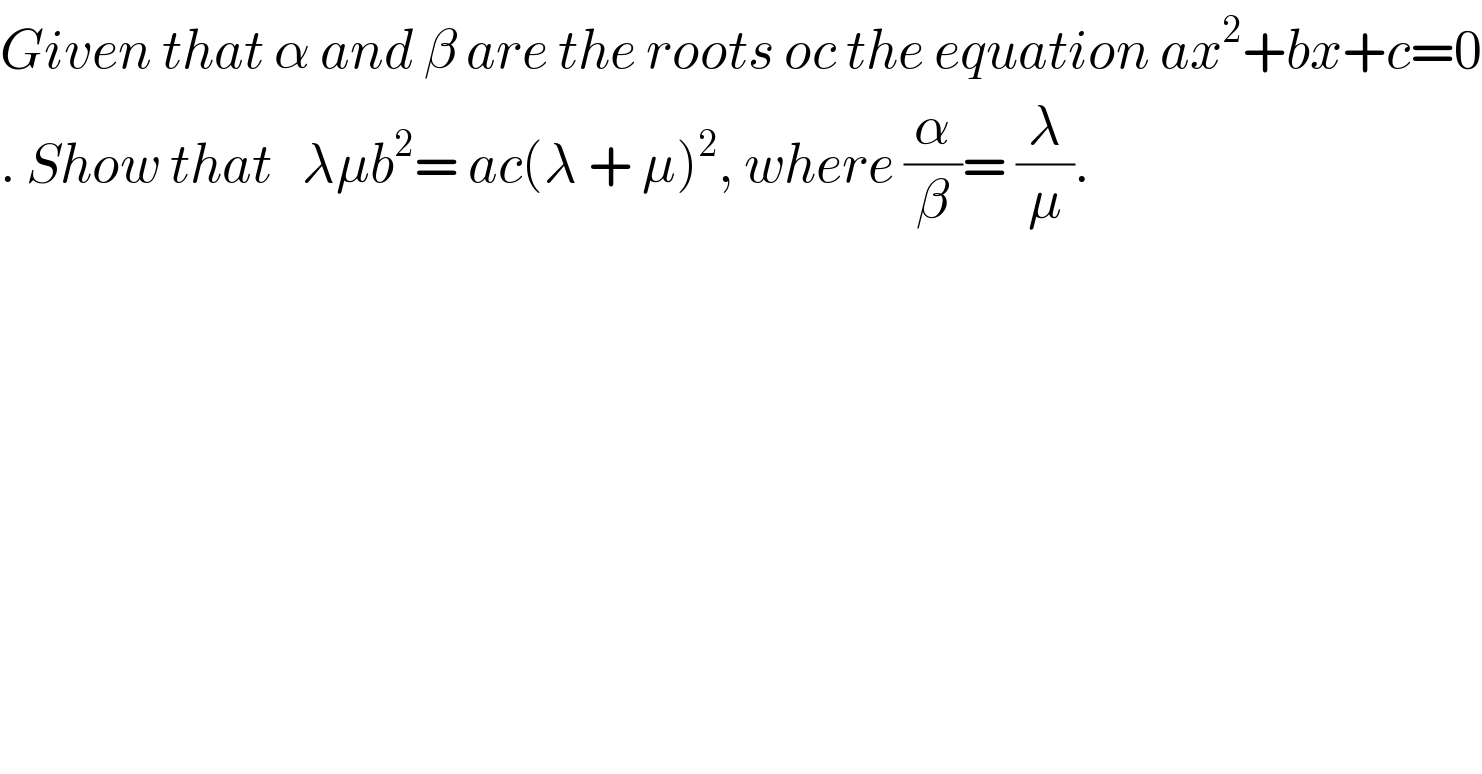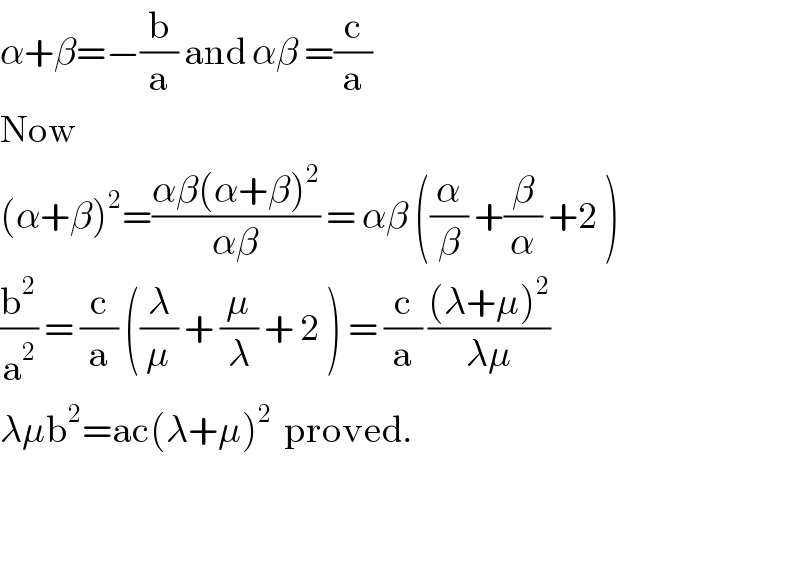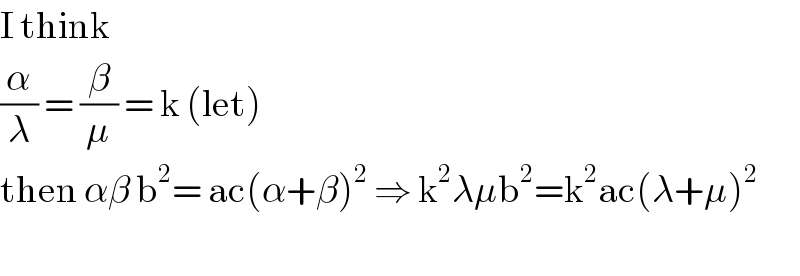
Question and Answers Forum
Question Number 63154 by Rio Michael last updated on 29/Jun/19

Commented by Prithwish sen last updated on 30/Jun/19

Commented by Rio Michael last updated on 02/Jul/19

Commented by Rio Michael last updated on 02/Jul/19

Commented by Prithwish sen last updated on 02/Jul/19

Commented by Rio Michael last updated on 02/Jul/19

